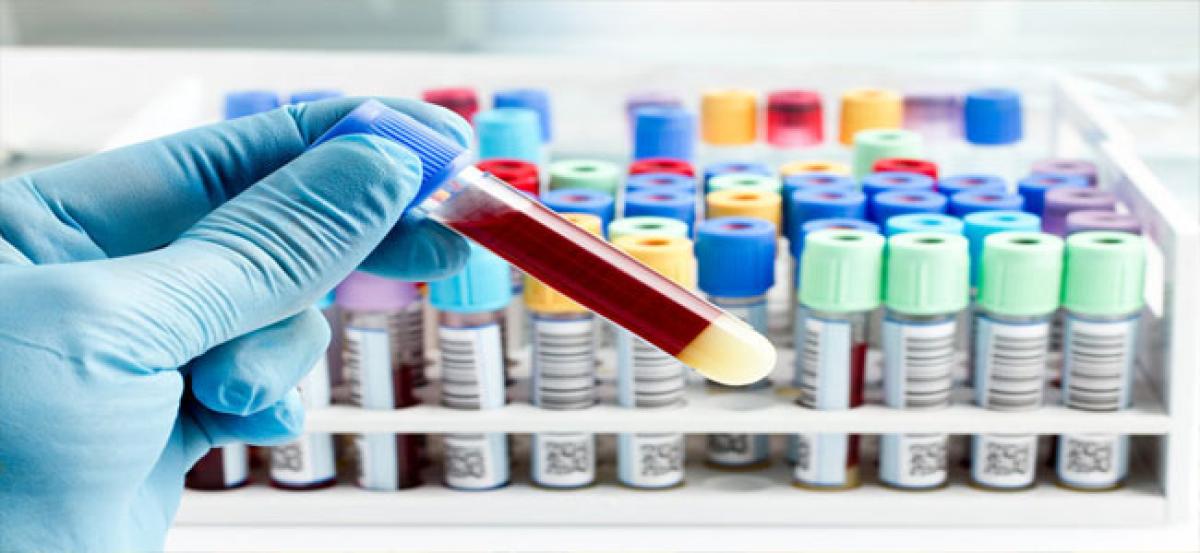Live
- Strict Protocols Set for Group 2 Exams in Wanaparthy District
- Delhi Police busts gang involved in cable theft on Delhi Metro Blue Line
- MP's Gita recitation programme finds place in Guinness World Records
- Pawan Kalyan Shines Globally as 2nd Most Googled Actor of 2024 Amid Busy Film, Political Career
- Disruptor of House is the chairman himself: Cong and INDIA bloc’s pointed remarks on No-trust notice
- IIIT-Bangalore to host computer vision conference ICVGIP 2024
- F1: Fernando Alonso ‘still dreaming’ of third world championship
- WI vs Bangladesh Watch Controversial Banter Between Shakib and King
- EFLU Celebrates Bharatiya Bhasha Diwas
- Manchu Manoj Submits Bond of Rs. 1 Lakh to Rachakonda Commissioner
Just In

The district may soon get a ‘biobank’ at Chandragiri, which can store stem cells, skin and organs. The Central government is planning to establish ‘biobanks’ at every Model Rural Health Research Unit (MRHRU) in the country in a phased manner, said the nodal officer of MRHRU at Chandragiri, Dr Sankar Reddy. Establishment of each biobank may cost around Rs 10-15 crore that will take the biomedical
Tirupati: The district may soon get a ‘biobank’ at Chandragiri, which can store stem cells, skin and organs. The Central government is planning to establish ‘biobanks’ at every Model Rural Health Research Unit (MRHRU) in the country in a phased manner, said the nodal officer of MRHRU at Chandragiri, Dr Sankar Reddy. Establishment of each biobank may cost around Rs 10-15 crore that will take the biomedical research a long way.
Dr Sankar Reddy of the Department of Community Medicine said that Department of Health research under the Union Ministry of Health and Family Welfare has established Model Rural Health Research Unit (MRHRU) in Chandragiri with Rs 5 crore budget. He will act as nodal officer for the unit.
This was aimed at making the medical fraternity to work in the areas of research thus reducing the workload of Indian Council of Medical Research (ICMR). In all, there are 12 MRHRUs in the country among which only three are in South India. Apart from Chandragiri the other two are in Tirunelveli and Belgaum.
Each MRHRU would be linked with one of the ICMR institution or centre for mentoring and the National Institute of Nutrition (NIN) is the mentor for Chandragiri unit. The government has allocated 55 cents of land for the establishment of the unit.
The civil works were completed and some equipment reached there. Specific project related advanced equipment will be procured as and when required.
The objective of MRHRU is that, it must identify local problems and prevailing diseases for research. They should develop necessary expertise to positively impact the health systems and services being provided to common man. Though it was not formally inaugurated, a study was already undergoing on nutritional status of vulnerable groups, said Dr Sankar Reddy.
He told The Hans India that another project on non-communicable risk factors was also in progress. A project on ‘Serosurveillance of MR vaccine’ will be taken up soon. Under this, the coverage of MR vaccine in Tirupati urban and Chandragiri mandals will be assessed. The sero type changes among the organisms causing measles virus and Rubella will also be studied. These projects are fully funded by the ICMR.
The nodal officer also explained that any student of UG or PG or any doctor can submit their project proposals. A committee will scrutinise these proposals and send for the ICMR for funding. Small projects funding will be provided by MRHRC itself from its research grants head. The findings of the research projects taken up by MRHRU may lead to policy decisions and may become national policy. Since longevity is increased, deceases also increased. These type of cohort studies can be made at MRHRU, he said.
By V Pradeep Kumar

© 2024 Hyderabad Media House Limited/The Hans India. All rights reserved. Powered by hocalwire.com







